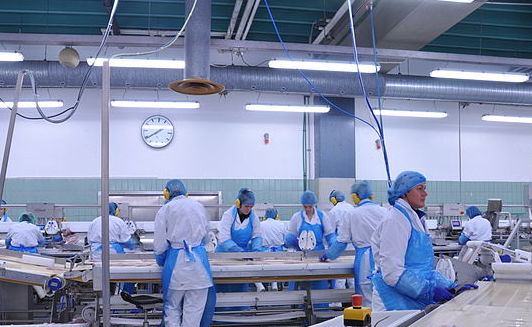Our Assembly-Line Future?
By Stuart A. Newman,
Counterpunch
| 07. 31. 2018
Human civilization has taken an important turn with the publication of a new report by the Nuffield Council, the semi-official bioethics agency of the United Kingdom. The document, two years in preparation, gives the go-ahead to genetically engineer human beings at the embryonic stages of development. The report stated: “There is potential for heritable genome editing interventions to be used at some point in the future in assisted human reproduction, as a means for people to secure certain characteristics in their children.” If history is a guide, the U.S. will not lag far behind the U.K. in following this dangerous path.
The U.K. pioneered human genetic engineering by approving, earlier this year, a technique to construct embryos using parts of the eggs of two different women, along with a man’s sperm, to create “three-person embryos.” Though deceptively promoted as “mitochondrial transfer,” the procedure really involves transferring around 20 thousand genes from a woman with impaired mitochondria into another woman’s egg. The accurate “three-person” designation was only widely used in the scientific literature after the procedure became legal. Similar misrepresentations of...
Related Articles
Flag of South Africa; design by Frederick Brownell,
image by WikimediaCommons users.
Public domain, via Wikimedia Commons
What is the legal status of heritable human genome editing (HHGE)? In 2020, a comprehensive policy analysis by Baylis, Darnovsky, Hasson, and Krahn documented that more than 70 countries and an international treaty prohibit it, and that no country explicitly permits it. Policies in some countries were non-existent, ambiguous, or subject to possible amendment, but the general rule remained, even after one...
By Tamsin Metelerkamp, Daily Maverick | 11.18.2024
The National Health Research Ethics Council (NHREC) has confirmed that heritable human genome editing (HHGE) remains illegal in South Africa, after changes in the latest version of the South African Ethics in Health Research Guidelines sparked concern among researchers that...
By Bernice Lottering, Gene Online | 11.08.2024
South Africa’s updated health-research ethics guidelines, which now include heritable human genome editing, have sparked concern among scientists. The revisions, made in May but only recently gaining attention, outline protocols for modifying genetic material in sperm, eggs, or embryos—changes that...
By Jantina de Vries, EthicsLab | 11.15.2024
The conversation around human heritable genome editing (HHGE) in South Africa is marked by controversy and conflicting interpretations of the law. At the center of this debate lies a team of lawyers based at a South African university, who have...




